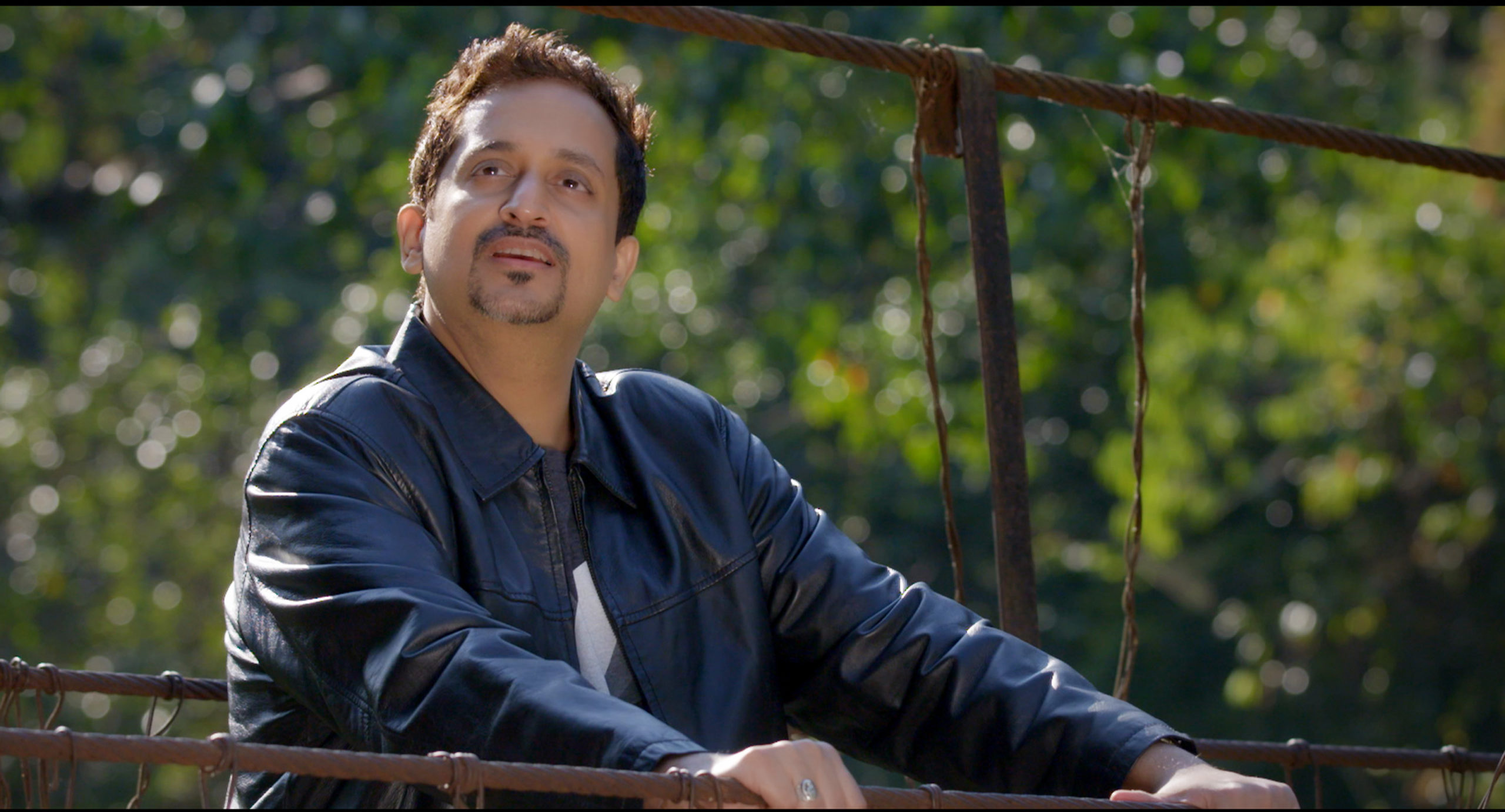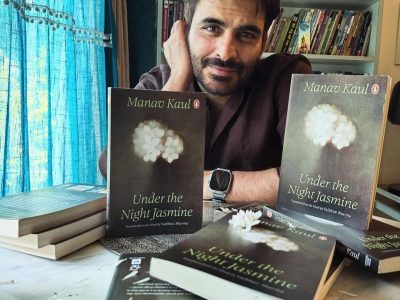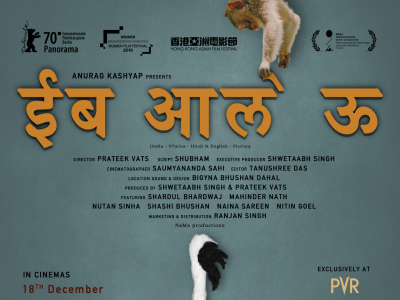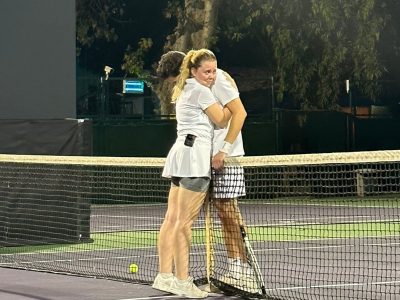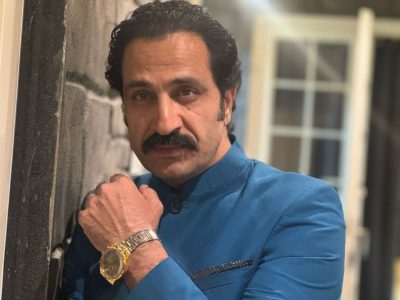Singer-composer Baiju Mangeshkar on his musical journey and beyond
It wouldn’t be wrong to call singer-composer Baiju Mangeshkar, the son of composer Hridaynath Mangeshkar and the nephew of legendary singers Lata Mangeshkar and Asha Bhosle, the torchbearer of the Mangeshkar family. His latest offering ‘Within You’ is a soulful Sufi album that also features international musicians. Prior to this, Baiju had done the album ‘Ya Rabba’ along with Lata Mangeshkar. He has also lent his voice in Marathi film music.
In this interview, Baiju Mangeshkar talks about ‘Mangeshkar’ family legacy, his latest album ‘Within You’, impact of the Covid-19 pandemic on the music industry, and his influences and inspirations. Excerpts:
Tell us about your latest album ‘Within You’. What are the different kinds of songs that it offers? Who all have you collaborated with on the album?
The album ‘Within You’ has been released on Times Music. It is a soulful bouquet of six Sufi songs presented in a contemporary style with influences of world music and Indian classical traditions. Each song is different from one another in its stylistic approach, thus one can hear a gamut of styles such as meditative trance, soft jazz, soft rock and light Hindustani classical.
The ‘kalaam’ (lyrics) are by three revered Sufi saints of 16th century India: Hazrat Shah Hussain, Baba Bulleh Shah and Khwaja Ghulam Farid. Also featured are two modern lyrics that are typically ‘sufiyana’ in thought written by Amruta, who is an emerging and gifted young poetess. The songs have been arranged by Jatin Sharma, with a host of highly talented Indian musicians contributing to the soundscape, including musicians from the west; Susan Mazer (jazz harp virtuosa) and Dallas Smith (master of woodwinds and saxophone), both of whom have worked with legends such as Frank Sinatra, Ahmed Jamal, Johnny Mathis, and our very own R. D. Burman. Songs and lyrics in the album, which may on first hearing appear as romantic ballads, are subtly disguised plays on the Sufi concepts of ‘Ishq-e-Majaazi’ and ‘Ishq-e-Haqeeqi’.
‘Ishq-e-Majaazi’ is the transitory love felt for another human being born out of emotional or physical desire, and ‘Ishq-e-Haqeeqi’ is a higher love felt for the creator. This love and romance of a higher intensity is the theme in this album. ‘Within You’ is a musical inner journey within one’s being, transporting the listener into the realm of love, devotion and peace!
There are three music videos produced for this album. The first one ‘Yahan Bhi Tu, Wahan Bhi Tu’ has been released on YouTube directed by a talented young man from Assam, Samujjal Kashyap. The other videos to be released shortly have been directed by a local young talent Abeer Kulkarni. The videos have been generously sponsored by Mr. Bharat Shah and Mrs. Lajo Gupta, respectively.
How do you look at the trend of releasing singles vis-a-vis albums? Do you think there have been fewer albums in recent times?
It is easier for independent artists to make singles over albums. And I am in absolute favour of all kind of collaborations, infusions, inflections of very diverse schools of music coming together so long as they don’t appear deliberately forced, but, on the contrary, unite as a seamless, effortless and tasteful confluence of styles without losing the essence and the soul.
I hope to continue creating more independent music, exploring genres such as romantic ballads, philosophical lyrics and songs based on spiritualism. I am also very keen to sing in the various languages of India.
How has the Covid-19 has changed the music scene? What, according to you, would be its long term impact?
Covid-19 has changed the creation of recorded music. It has affected live performances in a very bad way. Many artists who earn their livelihood with live music are now jobless. Until the situation improves, it is a bleak picture — a very sad scenario indeed.
The pandemic has affected everybody. The resources aren’t there. Everyone is struggling to make online concerts but it is not the same anymore.
How has your rich musical legacy helped shape you up as a singer? How do you deal with the burden and expectations associated with the ‘Mangeshkar’ surname?
I am most influenced by Lata Mangeshkar, the person and the artist. As a child, her voice and tunes first fell in my ears and touched me deeply. I am so close to that voice. When I grew up, only then I began to realise the greatness of the singer and person behind the art. As I grew up, I saw a lot of things that went on to make the phenomenon that is Lata Mangeshkar. I grew up on my dad’s music as well. We were not taken to recordings, but Lataji would bring songs home and we would all sit and listen to them.
The strongest influence in my head and soul is the voice and soul of Lata Mangeshkar and it guides me. Everything about her singing tone, pronunciation, pitch, vazan, murkis and even pauses… into the song she gives it all. The niyat towards singing you have to give it your best. It’s serious, give it your best.
It is the general Mangeshkar family aesthetics that have played an important part in shaping me up. The legacy has taught me very good music and in shaping my aesthetic sensibilities. I feel everyone has a place under the sun as an artist. I know I have very big shoes to fill in but it’s important for me to make my own individuality and create my own path. Successful or not, I like to stay positive.
Tell us about your influences and inspirations. Also tell us about your early musical training and formative years?
My musical training started at the age of 9. Pt Tulsidas Sharmaji, Ustad Bade Ghulam Ali Khan’s Shagird, hailing from the Patiala Gharana was my first guru. He passed away after a few years. I subsequently trained under Pt. Ramesh Juleji followed by Pt. Ajay Pohankar who was my third guru. I still take training and advice from them. I am still studying with them.
My influences are quite eclectic. I have been exposed to a lot of music, Western as well as Indian. Of course, there is a strong influence of Lataji. Classical music and ghazals have been an important part of my learning. Artists, both Indian as well as Pakistani, have influenced me such as Mehdi Hasan and Ustad Bade Ghulam Ali Khan. Among the western influences, I have been greatly inspired by the likes of Artitha Franklin, Marvin Gaye, and Harry Nilsson. The Beatles too have a very big influence. I have also been influenced by music directors like Madan Mohan, Jaidevji, Shankar Jaikishan, and Pancham Uncle, of course.
Various styles such as light classical ghazal in India, jazz, soul, blues, pop and rock, all these genres have played an important role in my life.
How do you look at playback singing as opposed to singing live in concerts? Which of the two is more challenging?
Both channels in their own ways. Live, of course, has no second chance. It takes preparation and courage to go and face audiences. Studio mike can be very unforgiving. You need to have that experience. Both have their own challenges and beautiful aspects.
What do you look for in a song before agreeing to do it?
Well, it should suit my tonal quality and range, and lyrics should be decent. If it touches my soul, it will excite me more as a musician. I like soulful music, romantic ballad singles and spiritual music. I would love to sing in various languages. I am also open to international collaborations.
(Cover Image: Singer Baiju Mangeshkar)

